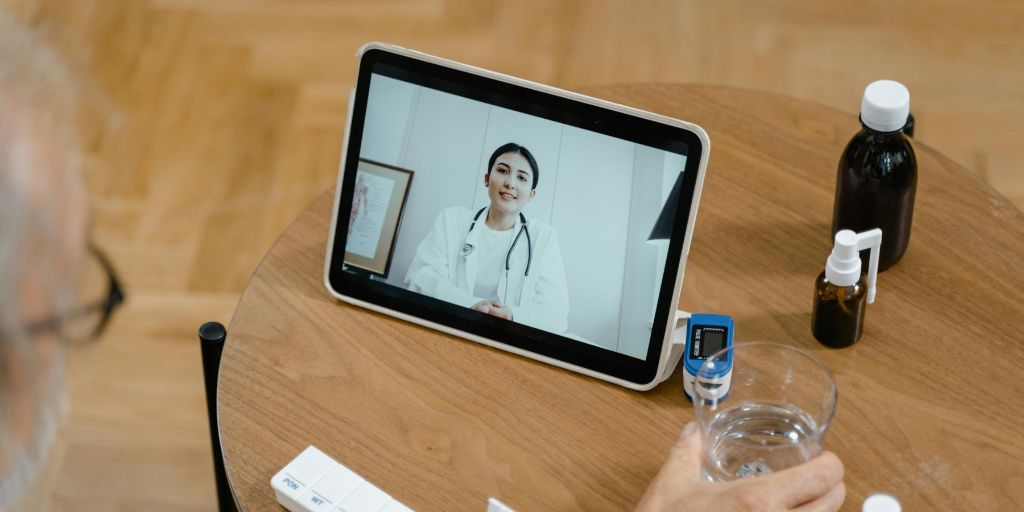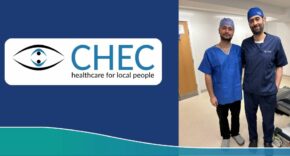
Integrating digital health tools is transforming forensic nursing studies, where precision in data collection and patient assessment is essential. These technologies enhance traditional methods by promoting collaboration, communication, and education among forensic nurses.
As forensic cases become more complex, digital tools are crucial for improving outcomes and preserving evidence integrity.
In this article, we examine how digital health tools are transforming forensic nursing by enhancing evidence collection and interdisciplinary collaboration. It also highlights the role of these tools in advancing educational practices within the field.
Understanding Forensic Nursing
As noted by Research.com, forensic nurses earn annual salaries that range from approximately $61,250 to $129,400, depending on their experience and expertise. To thrive in this specialized field, forensic nurses must possess a variety of technical skills tailored to the unique demands of their roles. These competencies are essential for delivering specialized medical care, gathering evidence, and aiding in legal processes.
Forensic nursing merges healthcare with the legal system, addressing the needs of individuals affected by violence, abuse, and trauma. Forensic nurses collect evidence, document injuries, and provide expert testimony in legal proceedings, drawing on their medical knowledge and legal principles.
The integration of advanced technology enhances evidence-gathering, improves patient management, and strengthens collaboration with law enforcement.
The Rise of Digital Health Tools
These technologies, including telehealth platforms, electronic health records, and mobile applications, enable forensic nurses to streamline workflows and improve patient outcomes. By enhancing data accuracy and facilitating real-time communication, digital tools are transforming how forensic nurses document evidence and manage patient information.
Furthermore, they create unparalleled opportunities for education and collaboration among interdisciplinary teams. Incorporating these innovations in forensic nursing enhances patient assessments, data collection, and investigations, leading to improved patient outcomes.
How has the COVID-19 pandemic accelerated the adoption of digital health tools in nursing?
The COVID-19 pandemic accelerated digital health adoption in nursing by requiring remote care solutions and reducing in-person interactions. Telehealth services proved essential during the pandemic, maintaining patient care while ensuring safety through remote assessments and guidance. This shift prompted healthcare professionals to embrace digital platforms for patient engagement and management.
Enhancing Data Collection and Analysis
Digital health tools are revolutionizing data collection and analysis in forensic nursing by automating processes and improving data accuracy. Electronic health records facilitate quick and efficient documentation, enabling nurses to capture comprehensive patient information seamlessly.
Advanced analytics tools can then process this data to identify trends, track outcomes, and support evidence-based practices. Moreover, digital platforms enable real-time data sharing among interdisciplinary teams, enhancing collaboration and ensuring that critical information is accessible.
How do digital tools ensure the accuracy and integrity of forensic data?
Digital tools ensure the accuracy and integrity of forensic data through a meticulous cloud digital forensics process. This involves four key stages: identification, preservation, examination, and presentation. Each stage utilizes specialized tools like Magnet AXIOM and Cellebrite UFED, which aid in capturing and securely storing evidence. Techniques such as hash codes and digital signatures further validate the evidence, enhancing its credibility in legal proceedings.
Improving Patient Assessment and Care
Digital services significantly enhance patient assessment and care, particularly in forensic nursing, by providing effective options for managing non-communicable diseases.
ScienceDirect states an umbrella review on digital services found that while 65% of studies showed mixed effects on health, 27% reported positive patient satisfaction. Telehealth technologies further facilitate remote assessments, broadening access for patients facing barriers to in-person visits.
Mobile applications and electronic health records improve tracking of patient histories and treatment responses, enhancing clinical decision-making. Addressing digital competency barriers is crucial to improving assessment processes and maximizing the effectiveness of digital health tools.
Streamlining Collaboration and Communication
Digital health tools are streamlining collaboration and communication among forensic nursing teams by fostering seamless interactions among interdisciplinary professionals. Secure messaging and shared electronic health records enable real-time information sharing, keeping the care team updated with patient data.
This increased transparency enhances coordination among nurses, law enforcement, and legal professionals, promoting a comprehensive approach to patient care and forensic investigations.
NCBI notes that telemedicine has led to a 27% improvement in interprofessional communication and collaboration across healthcare professions. Digital tools enhance decision-making effectiveness by 30.3% and healthcare worker satisfaction by 29.2% but increase burnout by 2.2%.
What are some best practices for using technology in interdisciplinary collaboration?
Effective interdisciplinary collaboration using technology involves establishing clear communication channels, utilizing shared digital platforms, and cultivating a culture of teamwork. Regular virtual meetings foster alignment on goals and expectations among team members. Training staff on technology usage ensures that everyone can effectively leverage digital tools. Prioritizing data security and privacy is also essential to maintain trust and confidentiality.
Educating the Next Generation of Forensic Nurses
Digital health tools are transforming forensic nursing education by offering innovative resources and dynamic learning opportunities. Online platforms provide access to educational resources, simulations, and workshops, promoting interactive learning and practical experiences.
Digital tools enhance traditional teaching methods, fostering collaboration among students, educators, and professionals and building a shared knowledge base.
Institutions incorporating digital tools better prepare future forensic nurses, improving learning outcomes and readiness for healthcare challenges. Pursuing an MSN in forensic nursing enhances skills in clinical care, forensic science, trauma-informed care, and evidence collection.
Specialized training opens pathways to careers like legal nurse consultants and death investigators, advocating for justice and compassionate care.
Cleveland State University states that these roles integrate forensic nursing into healthcare and legal systems, enabling professionals to influence community well-being. Forensic nurses make a prominent impact using critical thinking and advocacy skills to address the complex needs of patients and legal cases.
Challenges and Considerations
While digital health tools offer advantages for forensic nursing, they present challenges like data security and patient privacy, necessitating robust safeguards. Technology access disparities can create inequities in care, while rapid change may lead to a skills gap among practitioners.
A study from SpringerLink highlights five key challenges facing digital health technologies.
- Privacy, Security, and Ethical Concerns: The growth of mobile health apps and connected systems raises issues as they collect extensive personal patient data.
- Interoperability: Different digital health systems often struggle to communicate effectively with one another.
- Regulatory Framework: Varying regulations and guidelines across countries create obstacles in the adoption of digital health technologies.
- Public Awareness: Many healthcare providers and patients resist change due to a lack of understanding about the benefits and risks of digital health technologies.
- Legislative Issues: Existing laws need to evolve to accommodate advancements in science and technology for optimal use.
Innovations in Forensic Nursing Education
The integration of digital health tools is fundamentally reshaping the landscape of forensic nursing studies. By enhancing data collection, improving patient assessments, and streamlining collaboration, these technologies pave the way for a more efficient and effective practice.
As forensic nurses embrace these innovations, they become better equipped to navigate complex cases and advocate for their patients. However, the challenges accompanying this digital transformation must be carefully managed to ensure patient safety and equity.












